2 years ago
Inspiration
Middle East and Smart City Transformation
Middle East
Smart City Transformation
Smart city is not just a technological trend; it is a way of life. Smart cities use technology to improve the way we live, work, and play. Smart city is one of the most popular technology trends in the world today. This trend is also becoming increasingly popular in the Middle East, where many countries and cities are investing in smart technologies to improve the quality of life for their citizens.
However, this is where it all started
The term "smart city" was first popularized by Peter Schwartz, a futurist and author of the book The Art of the Long View: Planning For The Future In An Uncertain World in 1991. In his book, Schwartz predicted that cities of the future would use technology to become more efficient, environmentally friendly, and sustainable. From there, many countries around the globe have started their smart city initiative.
In the 2000s, the term "smart city" became even more popular with the development of the Internet of Things (IoT). IoT allows cities to connect various devices and systems so that they can collect and analyze data in real-time. Today, smart city has become one of the main trends in urban planning. Many cities around the world are developing smart city projects to improve the quality of life for their residents.
Smart Cities in Arab World (Belal and Shcherbina, 2018)
But, what exactly is a smart city?
A smart city is an urban area that uses technology to improve the quality of life for its citizens and to better manage its resources. Smart cities use a variety of technologies, including information and communication technologies (ICT), the Internet of Things (IoT), artificial intelligence (AI), and data analytics. In short, according to TWI Global, a smart city uses a framework of information and communication technologies to create, deploy and promote development practices to address urban challenges and create a joined-up technologically-enabled and sustainable infrastructure.
The purpose of smart city
The primary purpose of a smart city is to create an urban environment that yields a high quality of life to its residents while also generating overall economic growth. Smart cities leverage information and communication technologies (ICT) to enhance service levels, citizen well-being, sustainability, and economic development.
In addition, smart cities also have several secondary purposes, including enhancing citizen engagement and empowerment, improving efficiency and optimization, promoting data-driven decision-making, and fostering innovation and collaboration.
https://streetscape.ae/smart-city/
Smart city initiative in the Middle East
Smart cities began to gain popularity in the Middle East in the early 2000s, coinciding with the development of information and communication technologies (ICT) in the region. As reported by World Future Energy Summit, the acceleration of smart city development in the Middle East is being driven by increased investment and collaboration among countries.
In 2007, the United Arab Emirates (UAE) government launched the Smart Cities Strategy program, aiming to develop 150 smart cities across the country. Now, the Middle East expects to invest nearly U.S. $50 billion in smart city projects through 2025.
Interest in smart cities grew further in the Middle East during the 2010s, driven by several factors:
1. High urbanization rates in the Middle East: By 2022, an estimated 70% of the Middle East's population will reside in urban areas.
2. The need to improve the efficiency and sustainability of cities: Cities in the Middle East face various challenges, including air pollution, traffic congestion, and resource limitations.
3. The availability of increasingly sophisticated technology: Advanced ICT technologies enable cities in the Middle East to develop more innovative smart city solutions.
As the pioneer of smart city development in the Middle East, the United Arab Emirates is considered to be the country in the Middle East with the highest concentration of smart cities. The UAE has actively invested in developing smart city initiatives, and several of its cities rank among the most advanced in the world, including Masdar City, Dubai Silicon Oasis, and Lusail City. However, the most interesting this is, that NEOM—a new urban area planned by the Kingdom of Saudi Arabia—is set to be one of the most innovative cities in the world by automating the city and introducing a car-free transportation system, powered by renewable energy.
Here is a table listing some of the most notable smart cities in the Middle East:
City | Country | Notable Smart City Initiatives |
Dubai | United Emirates Arab | Smart grids, smart transportation systems, smart buildings, smart lighting, smart parking |
Abu Dhabi | United Emirates Arab | Masdar City (a sustainable city using renewable energy), smart grids, smart transportation systems, and smart water management |
Riyadh | Saudi Arabia | King Abdullah Economic City (KAEC)—a planned smart city with smart grids, smart transportation systems |
Muscat | Oman | Smart grids, smart transportation systems, smart water management |
The challenges of smart city
Oh, is there any? Yes, a lot. While smart city offers a promising vision for the future of urban development, the implementation comes with several challenges. These challenges include:
l Technological Complexity: Smart cities involve the integration of a wide range of technologies, including sensors, IoT devices, data analytics platforms, and communication networks. This complexity can make it difficult to ensure that all systems are compatible, interoperable, and secure.
l Data Privacy and Security: Smart cities collect vast amounts of data about citizens, infrastructure, and urban activities. This raises concerns about data privacy, security, and the potential for misuse of personal information.
l Cost and Funding: Implementing smart city initiatives can be expensive, requiring significant investments in infrastructure, technology, and expertise. Securing funding for these projects can be challenging, especially for cities with limited resources.
l Public Acceptance and Engagement: Gaining public acceptance and ensuring citizen engagement are crucial for the success of smart city initiatives. Citizens need to understand the benefits and potential risks of smart city technologies and have opportunities to participate in decision-making processes.
l Integration with Existing Systems: Smart city technologies need to be integrated with existing urban infrastructure and systems, such as transportation networks, energy grids, and waste management systems. This integration can be complex and requires careful planning and coordination.
Building smart city requires a collaborative effort from government agencies, private sector companies, research institutions, and citizens. By working together, smart cities can realize their potential to create more sustainable, livable, and equitable urban environments for all.
To achieve this goal, it is crucial to establish a strong supporting ecosystem. This involves the development of a robust digital infrastructure, including advanced communication networks, cutting-edge technology platforms, and efficient data management systems. A reliable digital infrastructure will facilitate the integration of various smart city services, ranging from transportation to energy management, creating a connected and effective environment. With a solid foundation in digital infrastructure, smart cities can better optimize resources and deliver maximum benefits to their communities.

Photo by Pixabay: https://www.pexels.com/photo/high-rise-buildings-during-night-time-photo-219692/
Partnering with BTS.id for a sustainable future
In the era of digital transformation, cities are evolving into dynamic ecosystems that leverage technology to enhance citizen well-being, optimize resource management, and drive economic growth. BTS.id stands as a trusted partner in this transformation journey, providing comprehensive IT-managed services and software development solutions that empower smart cities to reach their full potential.
As cities embrace technology to enhance their livability and sustainability, BTS.id is ready to empower them with the IT expertise and software solutions they need to thrive. Contact us today to discuss how we can help your city become a leader in the smart city revolution!
HIT US UP
BRIDGE TECHNOLOGY SERVICES
HIT US UP
BRIDGE TECHNOLOGY SERVICES

Your request has been sent, please wait for our reply
5G network technologies are the fifth generation of cellular network technology. They offer higher speeds, lower latency, and greater capacity than previous generations, and have the potential to revolutionize the way we live and work.
However, 5G networks are still in their early stages of development, and it will take several years for them to be widely available. However, the potential benefits of 5G are significant, and it is likely to have a major impact on the way we live and work in the years to come.
According to Business Insider, 5G first came in 2018. However, the first commercial 5G networks were launched in 2019. While there isn't one definitive date for the official launch of 5G since it launched in a staggered fashion across different companies and countries, South Korea was known as the first country to launch 5G networks, with SK Telecom, KT Corporation, and LG Uplus all launching their networks in April 2019.
Around the same time, Verizon launched the first commercial 5G mobile service in parts of Chicago and Minneapolis, United States. A month later, the first commercial 5G network in the Middle East was launched in the United Arab Emirates (UAE) in May 2019.
Etisalat, the country's largest telecommunications operator, launched its 5G network in select areas of Dubai and Abu Dhabi. Du, the UAE's second-largest telecommunications operator, followed suit in June 2019. Kuwait, Qatar, and Jordan joined the 5G hype within July by launching their first commercial 5G network (Zain, Ooredoo, and Orange Jordan).
What are the benefits of 5G technology?
5G technology is a significant advancement in cellular network technology that is expected to have a profound impact on our lives. 5G technology offers a range of benefits over previous generations of cellular networks, including:
Significantly faster data speeds: 5G can deliver peak data speeds of up to 20 gigabits per second (Gbps), which is about 20 times faster than 4G LTE. This means that you can download large files, stream high-definition video, and enjoy lag-free online gaming without any buffering.
Ultra-low latency: 5G has a latency of less than 1 millisecond, which is about 10 times lower than 4G LTE. This means that there is virtually no delay between sending a request and receiving a response, making it ideal for real-time applications such as video conferencing, online gaming, and remote surgery.
Massive capacity: 5G can connect up to 1 million devices per square kilometer, which is about 100 times more devices than 4G LTE. This means that 5G can support the growing number of connected devices in our homes, businesses, and cities, and can enable new applications such as the Internet of Things (IoT).
Improved reliability: 5G is designed to be more reliable than previous generations of cellular networks, with fewer dropped calls and a more consistent connection. This makes it ideal for critical applications such as self-driving cars and industrial automation.
Support for new applications: 5G's high speeds, low latency, and massive capacity will enable a wide range of new applications, including self-driving cars, VR and AR, and Internet of Things devices.
How will 5G technologies transform our world?
5G technology is expected to have a transformative impact on our world in some ways. In the upcoming decade, 5G is poised to become an essential infrastructure for innovation. It will enable a wide range of new applications and services, and will make our lives more connected, efficient, and secure.
Here are some of the ways that 5G technology will transform our world:
It will revolutionize the way we communicate: 5G will enable us to communicate with each other in new and innovative ways. For example, it will make it possible for us to have holographic video chats, and it will allow us to use augmented reality to overlay digital information onto the real world.
It will transform the way we work: 5G will make it possible for us to work more efficiently and effectively. In this case, drones can be employed to efficiently inspect infrastructure, while robots can be utilized to carry out hazardous tasks.
It will improve our quality of life: 5G will make it possible for us to have access to new and innovative services. For example, it will allow us to use smart home devices to control our homes remotely, and it will enable us to use self-driving cars to get around.
It will create new jobs and industries: 5G will create a wide range of new jobs and industries. The emergence of new technologies will lead to an increased demand for engineers and technicians with specialized skills. Additionally, these advancements will pave the way for the creation of innovative products and services.
It will make our cities more sustainable: 5G will make it possible for us to develop smarter and more sustainable cities. For example, it will allow us to use sensors to monitor traffic and pollution levels, and it will enable us to develop more efficient public transportation systems.
These are just a few of the ways that 5G technology will transform our world. It is a powerful technology that has the potential to change our lives for the better in many ways.

Image by Gerd Altmann from Pixabay
BTS.id: the 5G network solution for companies in the Middle East
BTS.id, a leading 5G management provider in Indonesia, has now expanded its reach to the Middle East by offering advanced and reliable 5G network management solutions to companies in the region.
With extensive experience in the telecommunications field and deep expertise in 5G technology, BTS.id is ready to help companies in the Middle East optimize their 5G network performance and fully exploit the potential of this revolutionary technology.
Don't miss the opportunity to enhance your business performance and harness the full potential of 5G technology. Contact BTS.id today to consult with our team of experts and get a 5G network solution tailored to your needs.
If you have read our previous article about online marketplace as the game changer in the business, you probably have realized the importance of building your own online store website. Compared to placing your business on giant online marketplace platforms such as Amazon, a personal website store is like an insurance against fatal external problems like platform shutdown. To develop an online store website, there are 2 practices that you can use: Simple Practice and Best Practice.
In this article, we will focus on the best one as it will benefit your business more than the Simple Practice. While it is true that Best Practice requires more time and money, it also gives a better result and is a better investment for your business as well. Making a website in Best Practice means you need programming language to develop your website. As technology advanced, so does programming language. There are currently thousands of different languages that you can choose when making a website. You only have to decide which language fit your needs the best.
Best Programming Language for Online Store Website
Among thousands, it must be difficult to choose the most effective one for your online store website, so you might want to start from the most popular ones. These languages must have gotten their popularity for a reason, and that reason might be because they are the best among others. When choosing what language to use for your website, though, you ought to put your preference and needs into consideration. After all, the best one is the one that works for you.

Photo by Pankaj Patel on Unsplash
The Basic Three
HTML, Javascript, and CSS are the pillars in front-end web development. Technically, HTML and CSS are not programming languages; but since they are on the front end of every web and application, learning the basic will help you understand Javascript and other programming languages better.
HTML is the core of every website. It provides the foundation of a website that is meant to be enhanced and modified by other technologies such as CSS and JavaScript in the next process. HTML defines the structure of a website’s content and its meaning e.g header, sub-header, body text, etc. As the name implies, instead of programming language, HTML or HyperText Markup Language uses tags to build a website page.
CSS or Cascading Style Sheets then gives the structure built by HTML style and appearance. Colors, fonts, spacing, background images, etc. CSS describes how HTML elements should be displayed on the front-end of the page.
Then we have JavaScript. JavaScript is more complicated than HTML and CSS. However, together with HTML and CSS, it was used on almost every website nowadays, for it makes a website page more powerful, and complex. It is a technology that allows developers to design interactive sites by enabling features such as confirmation box, animations, and special effects. Currently, according to GitHub, JavaScript remains the most popular programming language among developers. Most of internet’s popular sites such as Facebook, Twitter, Gmail, and Youtube rely on JavaScript to provide interactive website for users.




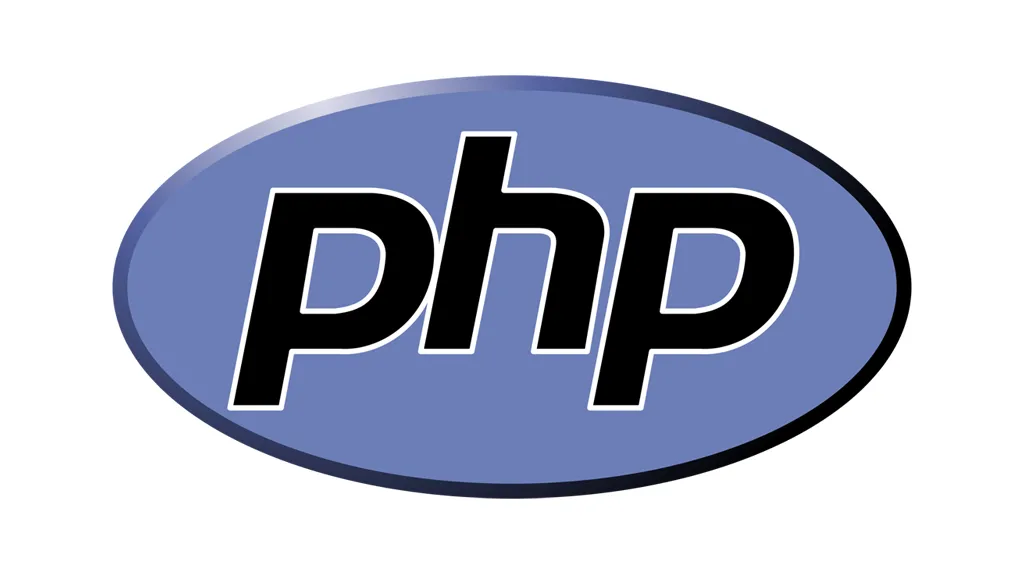
The Other Five
Another one on the list of most popular programming languages is Python. It is a high-level programming language that currently gaining massive popularity for its readability and efficiency; and ability to be used in a wide-range of tasks, including web development. It is perhaps the most user-friendly programming languages among all mentioned in this article.
Next, we have Java; a general-purpose computer-programming language that is concurrent, class-based, object-oriented that can be used as a ‘back-end’ programming language for website. Despite the name, Java is nothing related to Javascript. Compared to other programming languages, Java advanced in terms of functionality and security, and considered one of the most stable and reliable programming languages to build large system.
PHP: Hypertext Preprocessor is a popular general-purpose programming language that is designed for web development. It is used to make dynamic and interactive website. On the same budget, PHP offer more compared to another languages. It also operates faster and easier to maintenance.
Ruby is a dynamic, interpreted, reflective, object-oriented, general purpose programming language. It is used as the basis for Ruby on Rails framework that allows web applications to run faster than in another frameworks. The inventor, Yukihiro Matsumoto, has designed Ruby to be friendly and easy to use by developers. It is so simple it allows developers to do more with less code.
Last, we have Go. Go, or also known as Go Lang is an open source programming language that makes it easy for programmers to build simple, reliable, and efficient software and web application. Go Lang is built to make web development completed in faster and more effective way.
Conclusion
Explained above are programming languages that are commonly used for website development. Before deciding the best one for your online store website, you need to decide first what is actually needed by your business? Utilize the right language for the right purpose will certainly maximize the benefits of each technology.
Plan your company’s digital solution better with BTS.id (Bridge Technology Service). Contact us:
Telp : (+62 22) 6614726
Email : info@bts.id
Pengguna teknologi memudahkan manusia dalam menjalani kehidupannya di berbagai sektor, terutama sektor bisnis. Salah satu jenis teknologi yang banyak dibutuhkan oleh pelaku bisnis adalah teknologi dalam bentuk perangkat lunak atau software.
Persaingan pasar yang semakin ketat, kebutuhan untuk meningkatkan efisiensi operasional, serta tuntutan untuk tetap relevan di tengah perkembangan teknologi menjadi isu utama yang harus dihadapi. Namun, dibalik tantangan ini terdapat berbagai solusi digital yang dapat membantu mereka meningkatkan efisiensi dan daya saing.
Solusi bisnis digital, yang seringkali diwujudkan melalui layanan dari software house Indonesia adalah kunci bagi perusahaan untuk beradaptasi dan berkembang di era digital.
Software house Indonesia menyediakan layanan custom software development dan solusi IT yang disesuaikan dengan kebutuhan spesifik setiap bisnis, membantu meningkatkan efisiensi, produktivitas, dan daya saing di pasar yang kompetitif.
Di era transformasi digital, software house Indonesia menjadi mitra kunci bisnis dalam mengembangkan solusi teknologi inovatif. Mereka membantu startup hingga perusahaan besar merancang sistem custom, aplikasi, atau integrasi platform untuk meningkatkan efisiensi dan daya saing.
Software house adalah perusahaan yang bergerak di bidang software development untuk berbagai kebutuhan bisnis. Mereka bertanggung jawab dalam merancang, membangun, dan mengelola aplikasi atau sistem yang membantu perusahaan meningkatkan efisiensi operasional. Dari aplikasi mobile hingga sistem berbasis cloud, software house menawarkan solusi teknologi yang disesuaikan dengan kebutuhan klien.
Custom software development adalah proses pembuatan solusi software yang dirancang khusus untuk memenuhi kebutuhan unik suatu organisasi atau individu.
Berbeda dengan software standar yang menawarkan fungsionalitas umum, custom software difokuskan pada personalisasi untuk keselarasan sempurna dengan proses operasional, strategi bisnis, dan kebutuhan teknologi.
Dalam dunia bisnis yang semakin digital, pemilihan software yang tepat dapat berdampak pada efisiensi operasional, produktivitas dan pertumbuhan perusahaan.
Dua pilihan utama yang sering dipertimbangkan adalah Custom Software (perangkat lunak kustom) dan SaaS (software as a Service). Keduanya memiliki keunggulan dan tantangan masing-masing, tergantung pada kebutuhan bisnis perusahaan Anda.
Software custom memberikan fleksibilitas dan kontrol penuh, tetapi membutuhkan investasi besar dan waktu pengembangan yang lama. Di sisi lain, Saas menawarkan solusi instan dengan biaya lebih terjangkau, tetapi dengan keterbatasan kustomisasi.
Custom software development menawarkan berbagai keunggulan dibandingkan software siap pakai, terutama dalam hal fleksibilitas, efisiensi, dan skalabilitas. Umumnya custom software dibuat berdasarkan analisis mendalam tentang proses bisnis, tantangan, dan tujuan perusahaan. Sistem ini kemungkinan tidak tersedia di software instan seperti Saas, sehingga custom development bisa menjadi solusi,
Biasanya perusahaan bekerja sama dengan software developer untuk menciptakan solusi yang benar-benar disesuaikan dengan workflow dan proses bisnis mereka.
Beberapa benefit custom software development adalah:
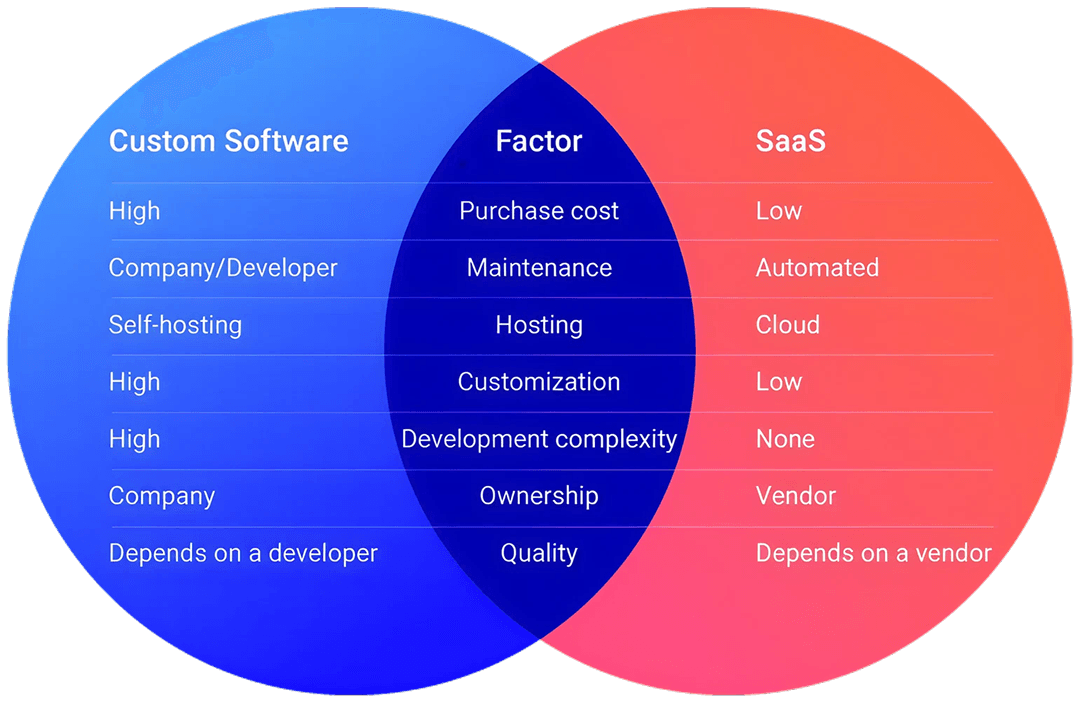
- Solusi yang Sepenuhnya Sesuai Dengan Kebutuhan
Custom software development dibuat khusus untuk menyesuaikan dengan workflow dan kebutuhan spesifik perusahaan.
Berbeda dari software siap pakai yang memiliki fitur standar untuk berbagai bisnis, salah satu benefit custom software memastikan semua fungsinya relevan dan efektif tanpa perlu penyesuaian tambahan. - Integrasi Lebih Mudah Dengan Sistem yang Sudah Ada
Benefit selanjutnya dari custom development adalah custom software dapat dikembangkan agar kompatibel dengan teknologi dan sistem yang sudah digunakan perusahaan.
Ini menghindari masalah kompatibilitas dan memastikan operasional berjalan lancar tanpa hambatan teknis akibat integrasi yang buruk. - Meningkatkan Produktivitas dan Efisiensi
Dengan fitur yang dirancang khusus, proses kerja menjadi lebih cepat dan efisien. Integrasi antar sistem lebih optimal, mengurangi pekerjaan manual, serta mempercepat akses dan pengolahan data, sehingga karyawan dapat fokus pada tugas yang lebih strategis, sehingga menjadi benefit tersendiri bagi perusahaan. - Kepemilikan Penuh dan Kontrol Total
Benefit selanjutnya dari custom development adalah Anda memiliki akses penuh ke source code (sumber kode), data, dan roadmap pengembangan tanpa tergantung pada penyedia software tertentu. - Keamanan Lebih Terjamin
Benefit yang tak kalah pentingnya adalah keamanan, karena dibuat khusus, sistem keamanan dapat disesuaikan dengan kebutuhan perusahaan, termasuk fitur enkripsi, autentikasi ganda, dan perlindungan data sensitif. Hal ini lebih aman dibanding software siap pakai yang sering menjadi target cyber crime karena digunakan secara luas.
Selain benefit dan keunggulan, berikut kekurangan dan tantangan dari custom software development adalah:
- Ketergantungan pada Vendor atau developer: Klien bisa menjadi tergantung pada vendor untuk pemeliharaan, update, atau troubleshooting. Resiko besar jika vendor tidak lagi tersedia atau memberikan dukungan.
- Resiko Kegagalan Proyek Lebih Tinggi: Tanpa manajemen proyek dan komunikasi yang baik maka bisa terjadi miskomunikasi antara pengguna bisnis dan tim teknis. Kemungkinan terjadi resiko produk akhir tidak sesuai harapan.
- Kompleksitas dalam Skalabilitas dan Integritas: Jika tidak dirancang dengan baik dari awal bisa berdampak dalam penambahan fitur atau integrasi baru bisa rumit dan mahal. Sementara skalabilitas bisa menjadi kendala teknis dan finansial di masa depan.
- Dukungan dan Pemeliharaan: Harus memiliki tim IT sendiri atau bergantung pada vendor untuk pemeliharaan.

Apa itu SaaS?
SaaS (Software as a Service) adalah software yang memungkinkan pengguna mengakses dan menggunakan aplikasi berbasis cloud melalui internet. Beberapa contoh adalah:
➢ CRM (Customer Relationship Management)
Membantu bisnis melacak interaksi pelanggan, mengelola prospek, menganalisis pipa penjualan dan menjalankan kampanye pemasaran yang efektif.
➢ SaaS Accounting
Menyediakan solusi perangkat lunak akuntansi berbasis cloud yang memungkinkan mengelola keuangan secara online.
➢ ERP (Enterprise Resource Planning)
Mengintegrasikan berbagai fungsi menjadi satu sistem lengkap untuk menyederhanakan proses di seluruh organisasi.
➢ HRIS (Human Resource Management System)
Untuk mengelola berbagai aspek sumber daya manusia dalam perusahaan.
Tidak seperti program traditional software lainnya, aplikasi SaaS tidak perlu diinstal di komputer Anda.
Harganya juga relatif lebih terjangkau karena Anda hanya membayar untuk figur yang Anda gunakan. Benefit terbesar dari aplikasi Saas adalah dapat diakses dari mana saja di dunia asalkan Anda memiliki koneksi internet. Layanan ini juga mempermudah perusahaan karena tidak membutuhkan maintenance.
SaaS cocok digunakan bagi startup atau perusahaan yang ingin membuat aplikasi tapi tidak mau direpotkan dengan berbagai server dan sejenisnya.
Beberapa kelebihan SaaS adalah:
- Biaya dan Investasi
Dari segi biaya, SaaS mempunyai benefit tersendiri, tergolong lebih hemat, dimana Anda tidak perlu melakukan maintenance server atau update karena dilakukan oleh penyedia layanan secara rutin.
Dengan menggunakan sistem subscribe, perusahaan hanya membayar sesuai jumlah pengguna dan fitur yang digunakan. Namun biaya ini bisa meningkat seiring pertumbuhan bisnis. - Kecepatan Implementasi
SaaS bisa langsung digunakan setelah berlangganan, sehingga cocok bagi bisnis yang membutuhkan solusi cepat tanpa perlu proses pengembangan. - Maintenance dan Update Otomatis
Semua pembaruan dan pemeliharaan dilakukan oleh penyedia Saas. - Akses Fleksibel
Bisa diakses dari mana saja selama ada koneksi internet.
Beberapa kekurangan yang perlu dipertimbangkan sebelum memilih SaaS adalah:
- Kustomisasi terbatas
SaaS umumnya didesain untuk kebutuhan umum. Akan sulit atau bahkan tidak mungkin untuk mengubah alur kerja atau fitur secara spesifik sesuai dengan kebutuhan bisnis yang unik. - Biaya Berkelanjutan
Meskipun biaya awal rendah, langganan bulanan/tahunan bisa menumpuk dalam jangka panjang. Jika kebutuhan bertambah (pengguna, fitur premium), biaya bisa meningkat signifikan. - Masalah Integrasi
SaaS mungkin tidak mendukung integrasi dengan sistem internal atau software lain yang digunakan perusahaan, sehingga bisa membutuhkan middleware atau solusi tambahan. - Potensi Downtime Tanpa Kendali
Jika terjadi gangguan server pada penyedia SaaS, Anda tidak bisa langsung mengatasinya. Hal ini dapat mempengaruhi operasional harian bisnis.
Menentukan apakah bisnis Anda sebaiknya menggunakan solusi kustom (custom software) atau SaaS (software as a Service) adalah keputusan strategis penting yang akan mempengaruhi efisiensi, biaya, dan skalabilitas jangka panjang.

Kapan Harus memilih Custom Software?
- Jika bisnis Anda memiliki kebutuhan unik yang tidak bisa dipenuhi oleh solusi Saas.
- Jika keamanan data menjadi prioritas utama.
- Jika Anda ingin solusi yang scalable tanpa batasan vendor.
- Jika anggaran memungkinkan investasi besar di awal untuk solusi jangka panjang.
Kapan Harus memilih SaaS?
- Jika Anda membutuhkan solusi cepat dengan biaya yang lebih rendah
- Jika bisnis Anda tidak memerlukan kustomisasi yang kompleks.
- Jika Anda ingin fokus pada bisnis tanpa harus mengelola sistem IT.
- Jika Anda menginginkan pemeliharaan dan update otomatis.
Memilih antara SaaS dan custom software bukan sekedar soal teknologi, tetapi keputusan strategis yang berdampak langsung pada efisiensi, pertumbuhan, dan daya saing bisnis Anda.
Tidak ada jawaban pasti apakah custom software atau SaaS yang lebih baik, karena semuanya tergantung pada kebutuhan bisnis Anda. Jika Anda menginginkan solusi yang benar-benar sesuai dengan proses bisnis dan memiliki anggaran yang cukup, custom software adalah pilihan terbaik.
Namun jika Anda menginginkan solusi cepat, hemat biaya, dan siap digunakan, maka SaaS bisa menjadi pilihan yang lebih praktis.
Custom software umumnya memang membutuhkan investasi besar karena proses pengembangannya melibatkan analisis bisnis yang mendalam, perancangan sistem yang disesuaikan, testing yang ketat, hingga integrasi yang optimal. Tetapi tentu saja sebanding dengan manfaat yang diberikan, seperti software yang dapat berkembang bersama bisnis, efisiensi yang lebih tinggi, serta kontrol penuh atas keamanan dan data.
Dengan custom software development, Anda tidak perlu lagi membayar biaya langganan berkepanjangan atau beradaptasi dengan batasan fitur dari SaaS.
Maka konsultasikan kebutuhan bisnis Anda dengan ahli teknologi atau software house yang terpercaya.
Pendekatan yang tepat akan mempercepat transformasi digital dan membantu Anda unggul dalam persaingan pasar yang terus berkembang.
Jika Anda masih bingung menentukan pilihan yang tepat, kami BTS.id dapat membantu Anda!
Kami menyediakan layanan custom software development yang disesuaikan dengan kebutuhan bisnis Anda.
BTS.id merupakan salah satu software house di Bandung, dan terbaik di Indonesia yang telah banyak dipilih oleh perusahaan-perusahaan besar Indonesia untuk membuat dan mengembangkan custom software sesuai dengan dengan kebutuhan mereka. Hal ini menjadikan software house developer BTS.id sebagai Technology Partner terbaik untuk membantu Anda menemukan solusi bisnis yang tepat untuk perusahan Anda.
5G network technologies are the fifth generation of cellular network technology. They offer higher speeds, lower latency, and greater capacity than previous generations, and have the potential to revolutionize the way we live and work.
However, 5G networks are still in their early stages of development, and it will take several years for them to be widely available. However, the potential benefits of 5G are significant, and it is likely to have a major impact on the way we live and work in the years to come.
According to Business Insider, 5G first came in 2018. However, the first commercial 5G networks were launched in 2019. While there isn't one definitive date for the official launch of 5G since it launched in a staggered fashion across different companies and countries, South Korea was known as the first country to launch 5G networks, with SK Telecom, KT Corporation, and LG Uplus all launching their networks in April 2019.
Around the same time, Verizon launched the first commercial 5G mobile service in parts of Chicago and Minneapolis, United States. A month later, the first commercial 5G network in the Middle East was launched in the United Arab Emirates (UAE) in May 2019.
Etisalat, the country's largest telecommunications operator, launched its 5G network in select areas of Dubai and Abu Dhabi. Du, the UAE's second-largest telecommunications operator, followed suit in June 2019. Kuwait, Qatar, and Jordan joined the 5G hype within July by launching their first commercial 5G network (Zain, Ooredoo, and Orange Jordan).

What are the benefits of 5G technology?
5G technology is a significant advancement in cellular network technology that is expected to have a profound impact on our lives. 5G technology offers a range of benefits over previous generations of cellular networks, including:
Significantly faster data speeds: 5G can deliver peak data speeds of up to 20 gigabits per second (Gbps), which is about 20 times faster than 4G LTE. This means that you can download large files, stream high-definition video, and enjoy lag-free online gaming without any buffering.
Ultra-low latency: 5G has a latency of less than 1 millisecond, which is about 10 times lower than 4G LTE. This means that there is virtually no delay between sending a request and receiving a response, making it ideal for real-time applications such as video conferencing, online gaming, and remote surgery.
Massive capacity: 5G can connect up to 1 million devices per square kilometer, which is about 100 times more devices than 4G LTE. This means that 5G can support the growing number of connected devices in our homes, businesses, and cities, and can enable new applications such as the Internet of Things (IoT).
Improved reliability: 5G is designed to be more reliable than previous generations of cellular networks, with fewer dropped calls and a more consistent connection. This makes it ideal for critical applications such as self-driving cars and industrial automation.
Support for new applications: 5G's high speeds, low latency, and massive capacity will enable a wide range of new applications, including self-driving cars, VR and AR, and Internet of Things devices.

How will 5G technologies transform our world?
5G technology is expected to have a transformative impact on our world in some ways. In the upcoming decade, 5G is poised to become an essential infrastructure for innovation. It will enable a wide range of new applications and services, and will make our lives more connected, efficient, and secure.
Here are some of the ways that 5G technology will transform our world:
It will revolutionize the way we communicate: 5G will enable us to communicate with each other in new and innovative ways. For example, it will make it possible for us to have holographic video chats, and it will allow us to use augmented reality to overlay digital information onto the real world.
It will transform the way we work: 5G will make it possible for us to work more efficiently and effectively. In this case, drones can be employed to efficiently inspect infrastructure, while robots can be utilized to carry out hazardous tasks.
It will improve our quality of life: 5G will make it possible for us to have access to new and innovative services. For example, it will allow us to use smart home devices to control our homes remotely, and it will enable us to use self-driving cars to get around.
It will create new jobs and industries: 5G will create a wide range of new jobs and industries. The emergence of new technologies will lead to an increased demand for engineers and technicians with specialized skills. Additionally, these advancements will pave the way for the creation of innovative products and services.
It will make our cities more sustainable: 5G will make it possible for us to develop smarter and more sustainable cities. For example, it will allow us to use sensors to monitor traffic and pollution levels, and it will enable us to develop more efficient public transportation systems.
These are just a few of the ways that 5G technology will transform our world. It is a powerful technology that has the potential to change our lives for the better in many ways.

Image by Gerd Altmann from Pixabay
BTS.id: the 5G network solution for companies in the Middle East
BTS.id, a leading 5G management provider in Indonesia, has now expanded its reach to the Middle East by offering advanced and reliable 5G network management solutions to companies in the region.
With extensive experience in the telecommunications field and deep expertise in 5G technology, BTS.id is ready to help companies in the Middle East optimize their 5G network performance and fully exploit the potential of this revolutionary technology.
Don't miss the opportunity to enhance your business performance and harness the full potential of 5G technology. Contact BTS.id today to consult with our team of experts and get a 5G network solution tailored to your needs.
If you have read our previous article about online marketplace as the game changer in the business, you probably have realized the importance of building your own online store website. Compared to placing your business on giant online marketplace platforms such as Amazon, a personal website store is like an insurance against fatal external problems like platform shutdown. To develop an online store website, there are 2 practices that you can use: Simple Practice and Best Practice.
In this article, we will focus on the best one as it will benefit your business more than the Simple Practice. While it is true that Best Practice requires more time and money, it also gives a better result and is a better investment for your business as well. Making a website in Best Practice means you need programming language to develop your website. As technology advanced, so does programming language. There are currently thousands of different languages that you can choose when making a website. You only have to decide which language fit your needs the best.
Best Programming Language for Online Store Website
Among thousands, it must be difficult to choose the most effective one for your online store website, so you might want to start from the most popular ones. These languages must have gotten their popularity for a reason, and that reason might be because they are the best among others. When choosing what language to use for your website, though, you ought to put your preference and needs into consideration. After all, the best one is the one that works for you.

Photo by Pankaj Patel on Unsplash
The Basic Three
HTML, Javascript, and CSS are the pillars in front-end web development. Technically, HTML and CSS are not programming languages; but since they are on the front end of every web and application, learning the basic will help you understand Javascript and other programming languages better.
HTML is the core of every website. It provides the foundation of a website that is meant to be enhanced and modified by other technologies such as CSS and JavaScript in the next process. HTML defines the structure of a website’s content and its meaning e.g header, sub-header, body text, etc. As the name implies, instead of programming language, HTML or HyperText Markup Language uses tags to build a website page.
CSS or Cascading Style Sheets then gives the structure built by HTML style and appearance. Colors, fonts, spacing, background images, etc. CSS describes how HTML elements should be displayed on the front-end of the page.
Then we have JavaScript. JavaScript is more complicated than HTML and CSS. However, together with HTML and CSS, it was used on almost every website nowadays, for it makes a website page more powerful, and complex. It is a technology that allows developers to design interactive sites by enabling features such as confirmation box, animations, and special effects. Currently, according to GitHub, JavaScript remains the most popular programming language among developers. Most of internet’s popular sites such as Facebook, Twitter, Gmail, and Youtube rely on JavaScript to provide interactive website for users.





The Other Five
Another one on the list of most popular programming languages is Python. It is a high-level programming language that currently gaining massive popularity for its readability and efficiency; and ability to be used in a wide-range of tasks, including web development. It is perhaps the most user-friendly programming languages among all mentioned in this article.
Next, we have Java; a general-purpose computer-programming language that is concurrent, class-based, object-oriented that can be used as a ‘back-end’ programming language for website. Despite the name, Java is nothing related to Javascript. Compared to other programming languages, Java advanced in terms of functionality and security, and considered one of the most stable and reliable programming languages to build large system.
PHP: Hypertext Preprocessor is a popular general-purpose programming language that is designed for web development. It is used to make dynamic and interactive website. On the same budget, PHP offer more compared to another languages. It also operates faster and easier to maintenance.
Ruby is a dynamic, interpreted, reflective, object-oriented, general purpose programming language. It is used as the basis for Ruby on Rails framework that allows web applications to run faster than in another frameworks. The inventor, Yukihiro Matsumoto, has designed Ruby to be friendly and easy to use by developers. It is so simple it allows developers to do more with less code.
Last, we have Go. Go, or also known as Go Lang is an open source programming language that makes it easy for programmers to build simple, reliable, and efficient software and web application. Go Lang is built to make web development completed in faster and more effective way.
Conclusion
Explained above are programming languages that are commonly used for website development. Before deciding the best one for your online store website, you need to decide first what is actually needed by your business? Utilize the right language for the right purpose will certainly maximize the benefits of each technology.
Plan your company’s digital solution better with BTS.id (Bridge Technology Service). Contact us:
Telp : (+62 22) 6614726
Email : info@bts.id
Pengguna teknologi memudahkan manusia dalam menjalani kehidupannya di berbagai sektor, terutama sektor bisnis. Salah satu jenis teknologi yang banyak dibutuhkan oleh pelaku bisnis adalah teknologi dalam bentuk perangkat lunak atau software.
Persaingan pasar yang semakin ketat, kebutuhan untuk meningkatkan efisiensi operasional, serta tuntutan untuk tetap relevan di tengah perkembangan teknologi menjadi isu utama yang harus dihadapi. Namun, dibalik tantangan ini terdapat berbagai solusi digital yang dapat membantu mereka meningkatkan efisiensi dan daya saing.
Solusi bisnis digital, yang seringkali diwujudkan melalui layanan dari software house Indonesia adalah kunci bagi perusahaan untuk beradaptasi dan berkembang di era digital.
Software house Indonesia menyediakan layanan custom software development dan solusi IT yang disesuaikan dengan kebutuhan spesifik setiap bisnis, membantu meningkatkan efisiensi, produktivitas, dan daya saing di pasar yang kompetitif.
Di era transformasi digital, software house Indonesia menjadi mitra kunci bisnis dalam mengembangkan solusi teknologi inovatif. Mereka membantu startup hingga perusahaan besar merancang sistem custom, aplikasi, atau integrasi platform untuk meningkatkan efisiensi dan daya saing.
Software house adalah perusahaan yang bergerak di bidang software development untuk berbagai kebutuhan bisnis. Mereka bertanggung jawab dalam merancang, membangun, dan mengelola aplikasi atau sistem yang membantu perusahaan meningkatkan efisiensi operasional. Dari aplikasi mobile hingga sistem berbasis cloud, software house menawarkan solusi teknologi yang disesuaikan dengan kebutuhan klien.
Custom software development adalah proses pembuatan solusi software yang dirancang khusus untuk memenuhi kebutuhan unik suatu organisasi atau individu.
Berbeda dengan software standar yang menawarkan fungsionalitas umum, custom software difokuskan pada personalisasi untuk keselarasan sempurna dengan proses operasional, strategi bisnis, dan kebutuhan teknologi.
Dalam dunia bisnis yang semakin digital, pemilihan software yang tepat dapat berdampak pada efisiensi operasional, produktivitas dan pertumbuhan perusahaan.
Dua pilihan utama yang sering dipertimbangkan adalah Custom Software (perangkat lunak kustom) dan SaaS (software as a Service). Keduanya memiliki keunggulan dan tantangan masing-masing, tergantung pada kebutuhan bisnis perusahaan Anda.
Software custom memberikan fleksibilitas dan kontrol penuh, tetapi membutuhkan investasi besar dan waktu pengembangan yang lama. Di sisi lain, Saas menawarkan solusi instan dengan biaya lebih terjangkau, tetapi dengan keterbatasan kustomisasi.
Custom software development menawarkan berbagai keunggulan dibandingkan software siap pakai, terutama dalam hal fleksibilitas, efisiensi, dan skalabilitas. Umumnya custom software dibuat berdasarkan analisis mendalam tentang proses bisnis, tantangan, dan tujuan perusahaan. Sistem ini kemungkinan tidak tersedia di software instan seperti Saas, sehingga custom development bisa menjadi solusi,
Biasanya perusahaan bekerja sama dengan software developer untuk menciptakan solusi yang benar-benar disesuaikan dengan workflow dan proses bisnis mereka.
Beberapa benefit custom software development adalah:

- Solusi yang Sepenuhnya Sesuai Dengan Kebutuhan
Custom software development dibuat khusus untuk menyesuaikan dengan workflow dan kebutuhan spesifik perusahaan.
Berbeda dari software siap pakai yang memiliki fitur standar untuk berbagai bisnis, salah satu benefit custom software memastikan semua fungsinya relevan dan efektif tanpa perlu penyesuaian tambahan. - Integrasi Lebih Mudah Dengan Sistem yang Sudah Ada
Benefit selanjutnya dari custom development adalah custom software dapat dikembangkan agar kompatibel dengan teknologi dan sistem yang sudah digunakan perusahaan.
Ini menghindari masalah kompatibilitas dan memastikan operasional berjalan lancar tanpa hambatan teknis akibat integrasi yang buruk. - Meningkatkan Produktivitas dan Efisiensi
Dengan fitur yang dirancang khusus, proses kerja menjadi lebih cepat dan efisien. Integrasi antar sistem lebih optimal, mengurangi pekerjaan manual, serta mempercepat akses dan pengolahan data, sehingga karyawan dapat fokus pada tugas yang lebih strategis, sehingga menjadi benefit tersendiri bagi perusahaan. - Kepemilikan Penuh dan Kontrol Total
Benefit selanjutnya dari custom development adalah Anda memiliki akses penuh ke source code (sumber kode), data, dan roadmap pengembangan tanpa tergantung pada penyedia software tertentu. - Keamanan Lebih Terjamin
Benefit yang tak kalah pentingnya adalah keamanan, karena dibuat khusus, sistem keamanan dapat disesuaikan dengan kebutuhan perusahaan, termasuk fitur enkripsi, autentikasi ganda, dan perlindungan data sensitif. Hal ini lebih aman dibanding software siap pakai yang sering menjadi target cyber crime karena digunakan secara luas.
Selain benefit dan keunggulan, berikut kekurangan dan tantangan dari custom software development adalah:
- Ketergantungan pada Vendor atau developer: Klien bisa menjadi tergantung pada vendor untuk pemeliharaan, update, atau troubleshooting. Resiko besar jika vendor tidak lagi tersedia atau memberikan dukungan.
- Resiko Kegagalan Proyek Lebih Tinggi: Tanpa manajemen proyek dan komunikasi yang baik maka bisa terjadi miskomunikasi antara pengguna bisnis dan tim teknis. Kemungkinan terjadi resiko produk akhir tidak sesuai harapan.
- Kompleksitas dalam Skalabilitas dan Integritas: Jika tidak dirancang dengan baik dari awal bisa berdampak dalam penambahan fitur atau integrasi baru bisa rumit dan mahal. Sementara skalabilitas bisa menjadi kendala teknis dan finansial di masa depan.
- Dukungan dan Pemeliharaan: Harus memiliki tim IT sendiri atau bergantung pada vendor untuk pemeliharaan.

Apa itu SaaS?
SaaS (Software as a Service) adalah software yang memungkinkan pengguna mengakses dan menggunakan aplikasi berbasis cloud melalui internet. Beberapa contoh adalah:
➢ CRM (Customer Relationship Management)
Membantu bisnis melacak interaksi pelanggan, mengelola prospek, menganalisis pipa penjualan dan menjalankan kampanye pemasaran yang efektif.
➢ SaaS Accounting
Menyediakan solusi perangkat lunak akuntansi berbasis cloud yang memungkinkan mengelola keuangan secara online.
➢ ERP (Enterprise Resource Planning)
Mengintegrasikan berbagai fungsi menjadi satu sistem lengkap untuk menyederhanakan proses di seluruh organisasi.
➢ HRIS (Human Resource Management System)
Untuk mengelola berbagai aspek sumber daya manusia dalam perusahaan.
Tidak seperti program traditional software lainnya, aplikasi SaaS tidak perlu diinstal di komputer Anda.
Harganya juga relatif lebih terjangkau karena Anda hanya membayar untuk figur yang Anda gunakan. Benefit terbesar dari aplikasi Saas adalah dapat diakses dari mana saja di dunia asalkan Anda memiliki koneksi internet. Layanan ini juga mempermudah perusahaan karena tidak membutuhkan maintenance.
SaaS cocok digunakan bagi startup atau perusahaan yang ingin membuat aplikasi tapi tidak mau direpotkan dengan berbagai server dan sejenisnya.
Beberapa kelebihan SaaS adalah:
- Biaya dan Investasi
Dari segi biaya, SaaS mempunyai benefit tersendiri, tergolong lebih hemat, dimana Anda tidak perlu melakukan maintenance server atau update karena dilakukan oleh penyedia layanan secara rutin.
Dengan menggunakan sistem subscribe, perusahaan hanya membayar sesuai jumlah pengguna dan fitur yang digunakan. Namun biaya ini bisa meningkat seiring pertumbuhan bisnis. - Kecepatan Implementasi
SaaS bisa langsung digunakan setelah berlangganan, sehingga cocok bagi bisnis yang membutuhkan solusi cepat tanpa perlu proses pengembangan. - Maintenance dan Update Otomatis
Semua pembaruan dan pemeliharaan dilakukan oleh penyedia Saas. - Akses Fleksibel
Bisa diakses dari mana saja selama ada koneksi internet.
Beberapa kekurangan yang perlu dipertimbangkan sebelum memilih SaaS adalah:
- Kustomisasi terbatas
SaaS umumnya didesain untuk kebutuhan umum. Akan sulit atau bahkan tidak mungkin untuk mengubah alur kerja atau fitur secara spesifik sesuai dengan kebutuhan bisnis yang unik. - Biaya Berkelanjutan
Meskipun biaya awal rendah, langganan bulanan/tahunan bisa menumpuk dalam jangka panjang. Jika kebutuhan bertambah (pengguna, fitur premium), biaya bisa meningkat signifikan. - Masalah Integrasi
SaaS mungkin tidak mendukung integrasi dengan sistem internal atau software lain yang digunakan perusahaan, sehingga bisa membutuhkan middleware atau solusi tambahan. - Potensi Downtime Tanpa Kendali
Jika terjadi gangguan server pada penyedia SaaS, Anda tidak bisa langsung mengatasinya. Hal ini dapat mempengaruhi operasional harian bisnis.
Menentukan apakah bisnis Anda sebaiknya menggunakan solusi kustom (custom software) atau SaaS (software as a Service) adalah keputusan strategis penting yang akan mempengaruhi efisiensi, biaya, dan skalabilitas jangka panjang.

Kapan Harus memilih Custom Software?
- Jika bisnis Anda memiliki kebutuhan unik yang tidak bisa dipenuhi oleh solusi Saas.
- Jika keamanan data menjadi prioritas utama.
- Jika Anda ingin solusi yang scalable tanpa batasan vendor.
- Jika anggaran memungkinkan investasi besar di awal untuk solusi jangka panjang.
Kapan Harus memilih SaaS?
- Jika Anda membutuhkan solusi cepat dengan biaya yang lebih rendah
- Jika bisnis Anda tidak memerlukan kustomisasi yang kompleks.
- Jika Anda ingin fokus pada bisnis tanpa harus mengelola sistem IT.
- Jika Anda menginginkan pemeliharaan dan update otomatis.
Memilih antara SaaS dan custom software bukan sekedar soal teknologi, tetapi keputusan strategis yang berdampak langsung pada efisiensi, pertumbuhan, dan daya saing bisnis Anda.
Tidak ada jawaban pasti apakah custom software atau SaaS yang lebih baik, karena semuanya tergantung pada kebutuhan bisnis Anda. Jika Anda menginginkan solusi yang benar-benar sesuai dengan proses bisnis dan memiliki anggaran yang cukup, custom software adalah pilihan terbaik.
Namun jika Anda menginginkan solusi cepat, hemat biaya, dan siap digunakan, maka SaaS bisa menjadi pilihan yang lebih praktis.
Custom software umumnya memang membutuhkan investasi besar karena proses pengembangannya melibatkan analisis bisnis yang mendalam, perancangan sistem yang disesuaikan, testing yang ketat, hingga integrasi yang optimal. Tetapi tentu saja sebanding dengan manfaat yang diberikan, seperti software yang dapat berkembang bersama bisnis, efisiensi yang lebih tinggi, serta kontrol penuh atas keamanan dan data.
Dengan custom software development, Anda tidak perlu lagi membayar biaya langganan berkepanjangan atau beradaptasi dengan batasan fitur dari SaaS.
Maka konsultasikan kebutuhan bisnis Anda dengan ahli teknologi atau software house yang terpercaya.
Pendekatan yang tepat akan mempercepat transformasi digital dan membantu Anda unggul dalam persaingan pasar yang terus berkembang.
Jika Anda masih bingung menentukan pilihan yang tepat, kami BTS.id dapat membantu Anda!
Kami menyediakan layanan custom software development yang disesuaikan dengan kebutuhan bisnis Anda.
BTS.id merupakan salah satu software house di Bandung, dan terbaik di Indonesia yang telah banyak dipilih oleh perusahaan-perusahaan besar Indonesia untuk membuat dan mengembangkan custom software sesuai dengan dengan kebutuhan mereka. Hal ini menjadikan software house developer BTS.id sebagai Technology Partner terbaik untuk membantu Anda menemukan solusi bisnis yang tepat untuk perusahan Anda.
5G network technologies are the fifth generation of cellular network technology. They offer higher speeds, lower latency, and greater capacity than previous generations, and have the potential to revolutionize the way we live and work.
However, 5G networks are still in their early stages of development, and it will take several years for them to be widely available. However, the potential benefits of 5G are significant, and it is likely to have a major impact on the way we live and work in the years to come.
According to Business Insider, 5G first came in 2018. However, the first commercial 5G networks were launched in 2019. While there isn't one definitive date for the official launch of 5G since it launched in a staggered fashion across different companies and countries, South Korea was known as the first country to launch 5G networks, with SK Telecom, KT Corporation, and LG Uplus all launching their networks in April 2019.
Around the same time, Verizon launched the first commercial 5G mobile service in parts of Chicago and Minneapolis, United States. A month later, the first commercial 5G network in the Middle East was launched in the United Arab Emirates (UAE) in May 2019.
Etisalat, the country's largest telecommunications operator, launched its 5G network in select areas of Dubai and Abu Dhabi. Du, the UAE's second-largest telecommunications operator, followed suit in June 2019. Kuwait, Qatar, and Jordan joined the 5G hype within July by launching their first commercial 5G network (Zain, Ooredoo, and Orange Jordan).

What are the benefits of 5G technology?
5G technology is a significant advancement in cellular network technology that is expected to have a profound impact on our lives. 5G technology offers a range of benefits over previous generations of cellular networks, including:
Significantly faster data speeds: 5G can deliver peak data speeds of up to 20 gigabits per second (Gbps), which is about 20 times faster than 4G LTE. This means that you can download large files, stream high-definition video, and enjoy lag-free online gaming without any buffering.
Ultra-low latency: 5G has a latency of less than 1 millisecond, which is about 10 times lower than 4G LTE. This means that there is virtually no delay between sending a request and receiving a response, making it ideal for real-time applications such as video conferencing, online gaming, and remote surgery.
Massive capacity: 5G can connect up to 1 million devices per square kilometer, which is about 100 times more devices than 4G LTE. This means that 5G can support the growing number of connected devices in our homes, businesses, and cities, and can enable new applications such as the Internet of Things (IoT).
Improved reliability: 5G is designed to be more reliable than previous generations of cellular networks, with fewer dropped calls and a more consistent connection. This makes it ideal for critical applications such as self-driving cars and industrial automation.
Support for new applications: 5G's high speeds, low latency, and massive capacity will enable a wide range of new applications, including self-driving cars, VR and AR, and Internet of Things devices.

How will 5G technologies transform our world?
5G technology is expected to have a transformative impact on our world in some ways. In the upcoming decade, 5G is poised to become an essential infrastructure for innovation. It will enable a wide range of new applications and services, and will make our lives more connected, efficient, and secure.
Here are some of the ways that 5G technology will transform our world:
It will revolutionize the way we communicate: 5G will enable us to communicate with each other in new and innovative ways. For example, it will make it possible for us to have holographic video chats, and it will allow us to use augmented reality to overlay digital information onto the real world.
It will transform the way we work: 5G will make it possible for us to work more efficiently and effectively. In this case, drones can be employed to efficiently inspect infrastructure, while robots can be utilized to carry out hazardous tasks.
It will improve our quality of life: 5G will make it possible for us to have access to new and innovative services. For example, it will allow us to use smart home devices to control our homes remotely, and it will enable us to use self-driving cars to get around.
It will create new jobs and industries: 5G will create a wide range of new jobs and industries. The emergence of new technologies will lead to an increased demand for engineers and technicians with specialized skills. Additionally, these advancements will pave the way for the creation of innovative products and services.
It will make our cities more sustainable: 5G will make it possible for us to develop smarter and more sustainable cities. For example, it will allow us to use sensors to monitor traffic and pollution levels, and it will enable us to develop more efficient public transportation systems.
These are just a few of the ways that 5G technology will transform our world. It is a powerful technology that has the potential to change our lives for the better in many ways.

Image by Gerd Altmann from Pixabay
BTS.id: the 5G network solution for companies in the Middle East
BTS.id, a leading 5G management provider in Indonesia, has now expanded its reach to the Middle East by offering advanced and reliable 5G network management solutions to companies in the region.
With extensive experience in the telecommunications field and deep expertise in 5G technology, BTS.id is ready to help companies in the Middle East optimize their 5G network performance and fully exploit the potential of this revolutionary technology.
Don't miss the opportunity to enhance your business performance and harness the full potential of 5G technology. Contact BTS.id today to consult with our team of experts and get a 5G network solution tailored to your needs.
If you have read our previous article about online marketplace as the game changer in the business, you probably have realized the importance of building your own online store website. Compared to placing your business on giant online marketplace platforms such as Amazon, a personal website store is like an insurance against fatal external problems like platform shutdown. To develop an online store website, there are 2 practices that you can use: Simple Practice and Best Practice.
In this article, we will focus on the best one as it will benefit your business more than the Simple Practice. While it is true that Best Practice requires more time and money, it also gives a better result and is a better investment for your business as well. Making a website in Best Practice means you need programming language to develop your website. As technology advanced, so does programming language. There are currently thousands of different languages that you can choose when making a website. You only have to decide which language fit your needs the best.
Best Programming Language for Online Store Website
Among thousands, it must be difficult to choose the most effective one for your online store website, so you might want to start from the most popular ones. These languages must have gotten their popularity for a reason, and that reason might be because they are the best among others. When choosing what language to use for your website, though, you ought to put your preference and needs into consideration. After all, the best one is the one that works for you.

Photo by Pankaj Patel on Unsplash
The Basic Three
HTML, Javascript, and CSS are the pillars in front-end web development. Technically, HTML and CSS are not programming languages; but since they are on the front end of every web and application, learning the basic will help you understand Javascript and other programming languages better.
HTML is the core of every website. It provides the foundation of a website that is meant to be enhanced and modified by other technologies such as CSS and JavaScript in the next process. HTML defines the structure of a website’s content and its meaning e.g header, sub-header, body text, etc. As the name implies, instead of programming language, HTML or HyperText Markup Language uses tags to build a website page.
CSS or Cascading Style Sheets then gives the structure built by HTML style and appearance. Colors, fonts, spacing, background images, etc. CSS describes how HTML elements should be displayed on the front-end of the page.
Then we have JavaScript. JavaScript is more complicated than HTML and CSS. However, together with HTML and CSS, it was used on almost every website nowadays, for it makes a website page more powerful, and complex. It is a technology that allows developers to design interactive sites by enabling features such as confirmation box, animations, and special effects. Currently, according to GitHub, JavaScript remains the most popular programming language among developers. Most of internet’s popular sites such as Facebook, Twitter, Gmail, and Youtube rely on JavaScript to provide interactive website for users.





The Other Five
Another one on the list of most popular programming languages is Python. It is a high-level programming language that currently gaining massive popularity for its readability and efficiency; and ability to be used in a wide-range of tasks, including web development. It is perhaps the most user-friendly programming languages among all mentioned in this article.
Next, we have Java; a general-purpose computer-programming language that is concurrent, class-based, object-oriented that can be used as a ‘back-end’ programming language for website. Despite the name, Java is nothing related to Javascript. Compared to other programming languages, Java advanced in terms of functionality and security, and considered one of the most stable and reliable programming languages to build large system.
PHP: Hypertext Preprocessor is a popular general-purpose programming language that is designed for web development. It is used to make dynamic and interactive website. On the same budget, PHP offer more compared to another languages. It also operates faster and easier to maintenance.
Ruby is a dynamic, interpreted, reflective, object-oriented, general purpose programming language. It is used as the basis for Ruby on Rails framework that allows web applications to run faster than in another frameworks. The inventor, Yukihiro Matsumoto, has designed Ruby to be friendly and easy to use by developers. It is so simple it allows developers to do more with less code.
Last, we have Go. Go, or also known as Go Lang is an open source programming language that makes it easy for programmers to build simple, reliable, and efficient software and web application. Go Lang is built to make web development completed in faster and more effective way.
Conclusion
Explained above are programming languages that are commonly used for website development. Before deciding the best one for your online store website, you need to decide first what is actually needed by your business? Utilize the right language for the right purpose will certainly maximize the benefits of each technology.
Plan your company’s digital solution better with BTS.id (Bridge Technology Service). Contact us:
Telp : (+62 22) 6614726
Email : info@bts.id
MORE ARTICLE
BRIDGE TECHNOLOGY SERVICES
MORE ARTICLE
BRIDGE TECHNOLOGY SERVICES

